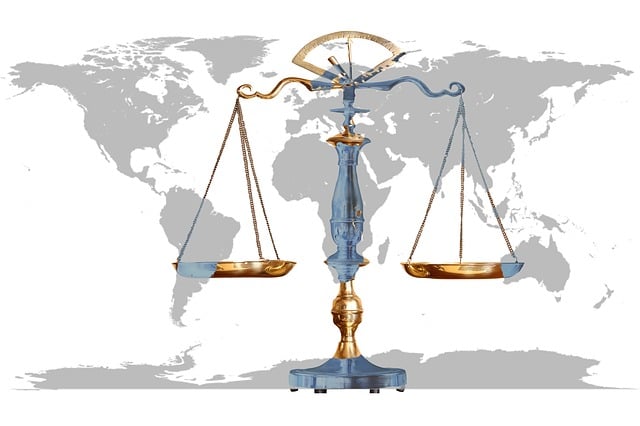Oregon's estate dispute resolution involves legal frameworks with options like mediation, arbitration, and litigation. Common causes include miscommunications, unclear documents, and family conflicts. Alternative Dispute Resolution (ADR) methods offer control, faster resolutions, and reduced costs. Mediation facilitates dialogue, confidentiality ensures safety, and agreements are documented in settlement agreements. Legal intervention is necessary for complex cases, with courts prioritizing efficient resolutions while respecting wills and trusts. Proactive estate planning through clear documents and communication safeguards assets and offers peace of mind for legacy preservation.
Oregon residents facing estate disputes can find valuable insights here. Understanding the state’s unique legal framework is crucial for informed decision-making. This guide explores key aspects of resolving estate conflicts, from the laws governing them to alternative dispute resolution (ADR) methods like mediation. We delve into step-by-step mediation processes and when legal action becomes necessary. Additionally, we offer prevention strategies to safeguard your assets. Empower yourself with knowledge on resolving estate disputes in Oregon.
- Understanding Oregon's Estate Dispute Laws
- Common Causes of Estate Disputes in Oregon
- Alternative Dispute Resolution Methods in Oregon
- Mediation: A Step-by-Step Guide for Oregon Residents
- When Legal Action Becomes Necessary in Oregon Estate Cases
- Protecting Your Assets: Prevention Strategies for Oregon Estate Disputes
Understanding Oregon's Estate Dispute Laws

In Oregon, resolving estate disputes is governed by a clear yet nuanced legal framework designed to protect the rights of all parties involved. Understanding these laws is crucial for making informed decisions when navigating such complex matters. The state’s legislation provides several avenues for settling conflicts related to wills, trusts, and heirships, ensuring fairness and order in the distribution of an estate.
When it comes to resolving estate disputes in Oregon, options include mediation, arbitration, and litigation. Mediation offers a collaborative approach where parties work together with a neutral third party to reach a mutually agreeable solution. Arbitration provides a more structured process, allowing parties to present their cases before an arbitrator who makes a binding decision. Litigation, the most formal method, involves filing a lawsuit in court, where a judge or jury determines the outcome based on evidence and legal arguments. Each option has its advantages, catering to different preferences and dispute complexities.
Common Causes of Estate Disputes in Oregon

In Oregon, as in many other states, common causes of estate disputes often stem from miscommunications, unclear wills or trusts, and conflicts among family members. When an individual passes away, their assets are typically distributed according to their last will and testament or a trust document. However, these legal documents can sometimes be complex or outdated, leading to disagreements among beneficiaries. For instance, beneficiaries might dispute the validity of a will, question the interpretation of its provisions, or contest the appointment of an executor. Additionally, family members may have differing opinions on how the deceased’s assets should be divided, especially when there are real estate properties, valuable personal items, or substantial financial holdings involved.
Resolving these estate disputes in Oregon often requires a combination of mediation, arbitration, or litigation. Mediation involves a neutral third party who facilitates negotiations between disputing parties, helping them reach an agreement that satisfies everyone involved. Arbitration is similar but involves a binding decision from an arbitrator, while litigation is a legal process where the dispute is resolved through a trial in court. Each method has its advantages and considerations, with the goal of achieving a fair resolution without prolonging the emotional and financial strain on family members.
Alternative Dispute Resolution Methods in Oregon

In Oregon, resolving estate disputes often moves beyond traditional litigation and embraces Alternative Dispute Resolution (ADR) methods. These include mediation, arbitration, and collaborative law, all designed to help parties reach agreements outside the courtroom. Mediation, for instance, brings both sides together with a neutral third party who facilitates dialogue and guides negotiations, fostering an environment conducive to cooperative problem-solving.
Arbitration, on the other hand, involves submitting the dispute to a private arbitrator who reviews the evidence and makes a binding decision. Collaborative law takes a team approach, where each side has legal representation dedicated to reaching a mutually acceptable solution without the threat of litigation. These ADR methods offer Oregon residents more control over the process, often resulting in faster resolutions and reduced legal costs compared to traditional court battles.
Mediation: A Step-by-Step Guide for Oregon Residents

Mediation offers a practical and cost-effective approach to resolving estate disputes in Oregon. Here’s a step-by-step guide for residents navigating this process. Firstly, all parties involved should agree to participate in mediation, ensuring voluntary engagement. Next, they select a qualified mediator, often an impartial third party trained in conflict resolution. During the initial session, the mediator facilitates open dialogue, helping each side express their interests and concerns openly.
The mediator then works with both parties to identify common ground and explore creative solutions. This collaborative process aims to reach an agreement acceptable to all involved, avoiding the need for lengthy and expensive litigation. Throughout mediation, the mediator maintains confidentiality, fostering a safe environment for open communication. Once an agreement is reached, it’s documented in a legally binding settlement agreement, providing a clear framework for resolving the Oregon estate dispute.
When Legal Action Becomes Necessary in Oregon Estate Cases

In many cases, resolving estate disputes in Oregon can be achieved through alternative methods like mediation or arbitration, which are often more cost-effective and less time-consuming than legal action. However, when negotiations fail or there’s a complex situation involving multiple parties with competing interests, legal intervention becomes necessary. Estate litigation in Oregon is governed by state laws and court procedures that ensure fairness and the orderly transfer of assets.
When legal action is required, it’s crucial to involve an experienced estate attorney who can navigate the intricate regulations and protect the rights of all involved. In Oregon, courts prioritize resolving estate disputes efficiently while respecting the wishes of the decedent as expressed in their will or trust documents. This process involves careful consideration of legal arguments, evidence presentation, and adherence to procedural rules to reach a fair and just resolution.
Protecting Your Assets: Prevention Strategies for Oregon Estate Disputes

Protecting your assets is a key aspect of ensuring smooth sailing when it comes to estate disputes in Oregon. Proactive strategies can significantly mitigate potential conflicts, allowing you to maintain control and pass on your legacy as intended. One effective approach is establishing clear, comprehensive wills and trusts tailored to Oregon’s legal framework. These documents should clearly define property distribution, appoint guardians for minor children or pets, and include any specific wishes regarding end-of-life care.
Additionally, regular communication with family members about estate plans can foster understanding and reduce misunderstandings later on. It’s wise to involve trusted advisors, such as attorneys specializing in estate planning and resolution of estate disputes Oregon, who can offer guidance and ensure your wishes are legally sound. This proactive approach not only protects assets but also fosters peace of mind, ensuring your legacy is respected and preserved.






